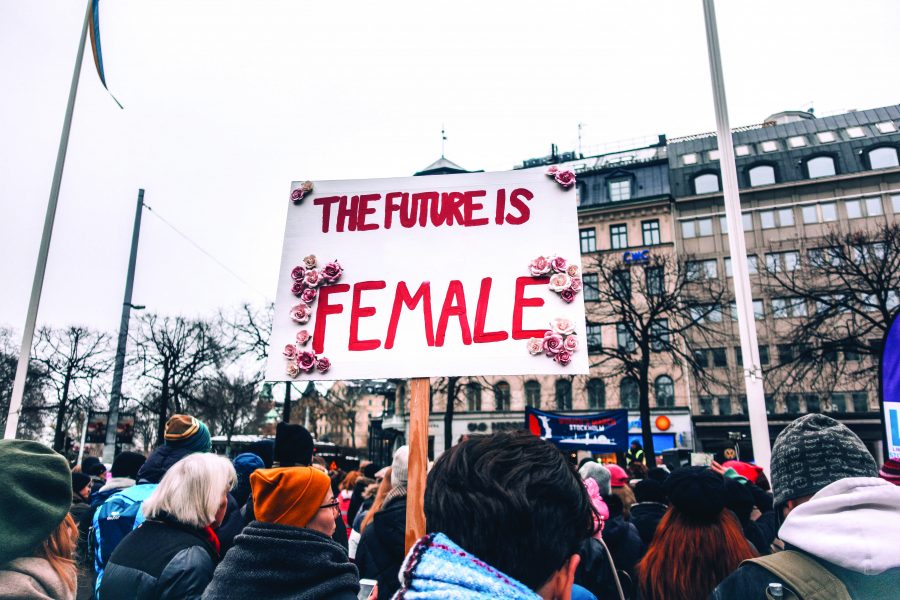The feminist movement is not a novelty brewed in the outspoken online universe, but its wide-spread modern acceptance is certainly a product of recent generations. For some, this acceptance of the movement — which was perceived as incredibly radical only a couple of decades ago — is the new normal. In these highly politically-conscious times, there are few women who wouldn’t identify as feminists, especially as the diversity of the movement is becoming more represented in popular media. Feminism is mainstream, while the stereotype of the man-hating radical feminist is now mostly relegated to the imaginations of alt-right Reddit trolls.
The profound impact of feminism can be seen from increased representation in television shows for children to the historical number of women who run and are elected to public office. Celebrities, politicians and brands often do not shy away from adopting a feminist stance, aware that their remarks will no longer alienate a large percentage of the American public. After all, empowering such a large portion of the population has the potential to translate into similarly large profits.
Though it might seem like the world is finally moving closer to an acceptance of feminism and greater gender equality, there are still areas where the ramifications of centuries upon centuries of sexism still exist. All progress aside, the contemporary world is nowhere close to a feminist utopia where the equality of the sexes can be taken for granted. Even decades of awareness of gendered injustice cannot erase the sexism that has been thousands of years in its making.
The constant cacophony of terms such as “toxic masculinity,” “the patriarchy” and “gender roles” in the media indicates that, as a society, we are still engaged in heated debate. Women today are brought up with healthier views of feminism, but they are still affected by the regressive attitudes of yesterday. Unfortunately, these attitudes can also be found in generations of older women.
While young girls now are growing up watching the #MeToo movement and the mainstreaming of feminism, the generations of women before them didn’t enjoy the same accessibility to healthy demonstrations of female solidarity. Girls today are witnessing the power of sisterhood while their parents and even their older siblings were raised on “frenemies” and “mean girls,” when female friendship was portrayed as a burden or a source of conflict and competition. Media depictions of these characters have fueled the notion that women are unable to get along with one another, which is recreated in real life by tabloids.
This continues today, where the women who were raised with these ideas are now adults and are often pitted against each other on the public stage. The media and the internet are plagued with manufactured female rivalries, from celebrities — Cardi B versus Nicki Minaj — to political leaders — Nancy Pelosi and Alexandria Ocasio-Cortez. Even when modern society embraces increasingly feminist views, it can still be affected by the antagonism of past sexism.
We are similarly recovering from “women’s stories” being limited to chick-flicks, where “getting the guy” is the sole motivation for a female protagonist, if not the explanation for her entire existence. Female exceptionalism — like the “manic pixie dream girl” — is the predominant element of these movie plots. Film implies that women are only valuable as exemptions to the female collective. Women are better, special, even, if they are “different from other girls.”
Generations of young girls — the young professionals, leaders and mothers of today — were encouraged to distance themselves from femininity based on a misguided promise that it would lift them as individuals. Avoiding “silly” feminine traits was not treated as a valid preference, but rather as a tool to insult other women by comparison. The archetype of the exceptional woman has taught girls to dismiss female community and to seek the approval of patriarchal power. Many women have unintentionally internalized this training from the media. Instead of seeing other women as sisters, women have been taught only to see them as competitors.
Conditioned to believe that success is only available to a limited number of women, older generations continue to put down other women in order to protect themselves since emotional isolation from other women was how they were taught to preserve their self-esteem. It is difficult to break out of the idea that climbing to power should be at the expense of other members of your gender. The inability to reject the manufactured female competition holds them back, even as new generations of women learn very different lessons.
It is important that modern feminism not forget these women. As these conversations continue to happen online and in savvy branding, women must remember how different their experiences are. These women learned difficult lessons and should be included as we let them go in favor of strong, female relationships. Instead of falling into the same trap of blaming other women, we must work together to avoid these lessons taught by the media.


